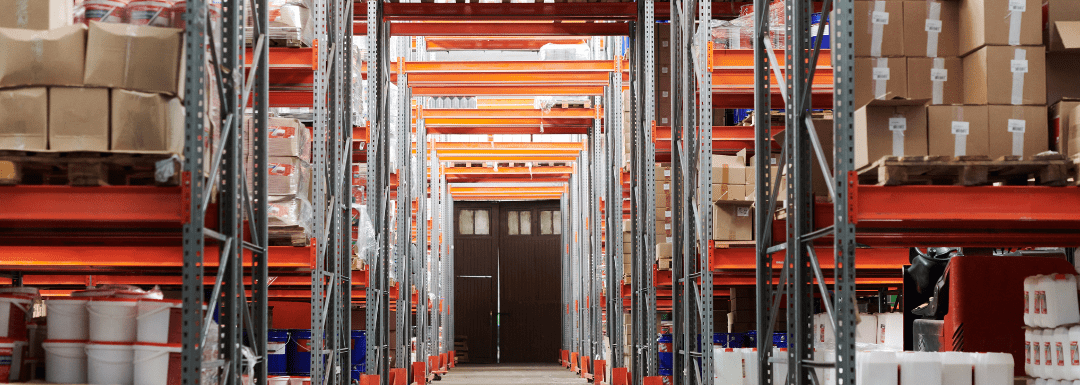A Warehouse Management System (WMS) is not a one-size-fits-all solution because warehousing and distribution operations can vary significantly from one organisation to another. Here are some key reasons why a WMS must be customised and tailored to meet the specific needs of each business:
1. Diverse Warehouse Operations
Warehouses can serve various industries and types of businesses, each with its own unique requirements. For example, a WMS used in an e-commerce fulfillment centre will have different needs compared to one used in a pharmaceutical distribution centre or a manufacturing facility.
2. Varied Inventory Types
Different businesses deal with diverse types of inventory, including perishable goods, bulk items, serialised items, hazardous materials, and more. A WMS must be capable of handling the specific inventory types and their associated storage and handling requirements.
3. Warehouse Layout and Configuration
The physical layout and configuration of warehouses can vary widely. A WMS needs to adapt to the layout, including the placement of storage racks, shelving, and picking zones, to optimise operational efficiency.
4. Volume and Velocity of Transactions
Warehouses can vary in terms of the volume of goods they handle and the speed at which those goods move through the facility. A WMS must be able to scale to accommodate high transaction volumes and rapid order fulfillment if necessary.
5. Complexity of Operations
Some warehouses have relatively straightforward operations, while others involve complex processes such as kitting, assembly, cross-docking, and value-added services. The WMS needs to support and streamline these specific processes.
6. Integration Needs
A WMS often needs to integrate with other systems, such as Enterprise Resource Planning (ERP) software, transportation management systems, and order management systems. The nature and complexity of these integrations can vary greatly.
7. Regulatory Compliance
Different industries and regions have specific regulations and compliance requirements, such as those related to food safety, pharmaceuticals, or hazardous materials handling. The WMS may need to enforce compliance with these regulations.
8. User Roles and Permissions
Organisations have different structures and hierarchies, with various employees performing different roles within the warehouse. A WMS should support role-based access control to ensure that users have appropriate permissions and visibility.
9. Reporting and Analytics
Businesses have unique reporting and analytics needs. A WMS must be able to generate customised reports and provide actionable insights to support decision-making.
10. Seasonal and Demand Variability
Some businesses experience seasonal demand fluctuations or irregular demand patterns. A WMS should be adaptable to handle these changes efficiently.
11. Continuous Improvement
Warehousing operations are subject to continuous improvement efforts. A WMS should be flexible enough to accommodate changes in processes and workflows as businesses evolve and optimise their operations.
12. User Experience and Training
Employees in different organisations may have varying levels of experience and training. A user-friendly interface and comprehensive training materials are essential to ensure that all users can effectively utilise the WMS.
Due to these variations, implementing a WMS often involves a thorough assessment of a company’s unique needs and challenges. The system should then be configured, customised, and tested to align with those needs. As a result, WMS implementations are typically tailored projects that require collaboration between the WMS provider, the organization’s IT and operations teams, and often external consultants with expertise in warehouse management.
At THINK our employees and software are key to ensuring your warehouse management system process is designed, tested, and implemented to give you a lean and efficient system flow. The key benefits of a warehouse management system will enable you to reduce costs, gain greater transparency of inventory, and improve your supply chain.
Our project managers have worked within the supply chain and IT industry for decades and are experts in warehouse inventory management solutions. From the first inquiry to the project handover to support we can ensure that you are always in the best possible hands to help your business.
THINK is not just a software provider we consult businesses on supply chain challenges that can affect the costs, a timeline of delivery, or storage of goods. We have a partner network that enables us to provide complete industry expert solutions. Along with this our IT consultancy enables us to help small businesses get the correct advice to help set them up for future growth.
To discuss how a THINK warehouse management system can improve your business get in touch with our experts today
Are you worried that a warehouse management solution will be too expensive, or that you will be trapped in a long contract? To arrange a demo or discuss your requirements, give THINK a call on 0330 350 0715, email enquiries@tkinv.com or complete the Quick Quote form below. We can work with your business to help save you money and drive down costs.


Recent Comments